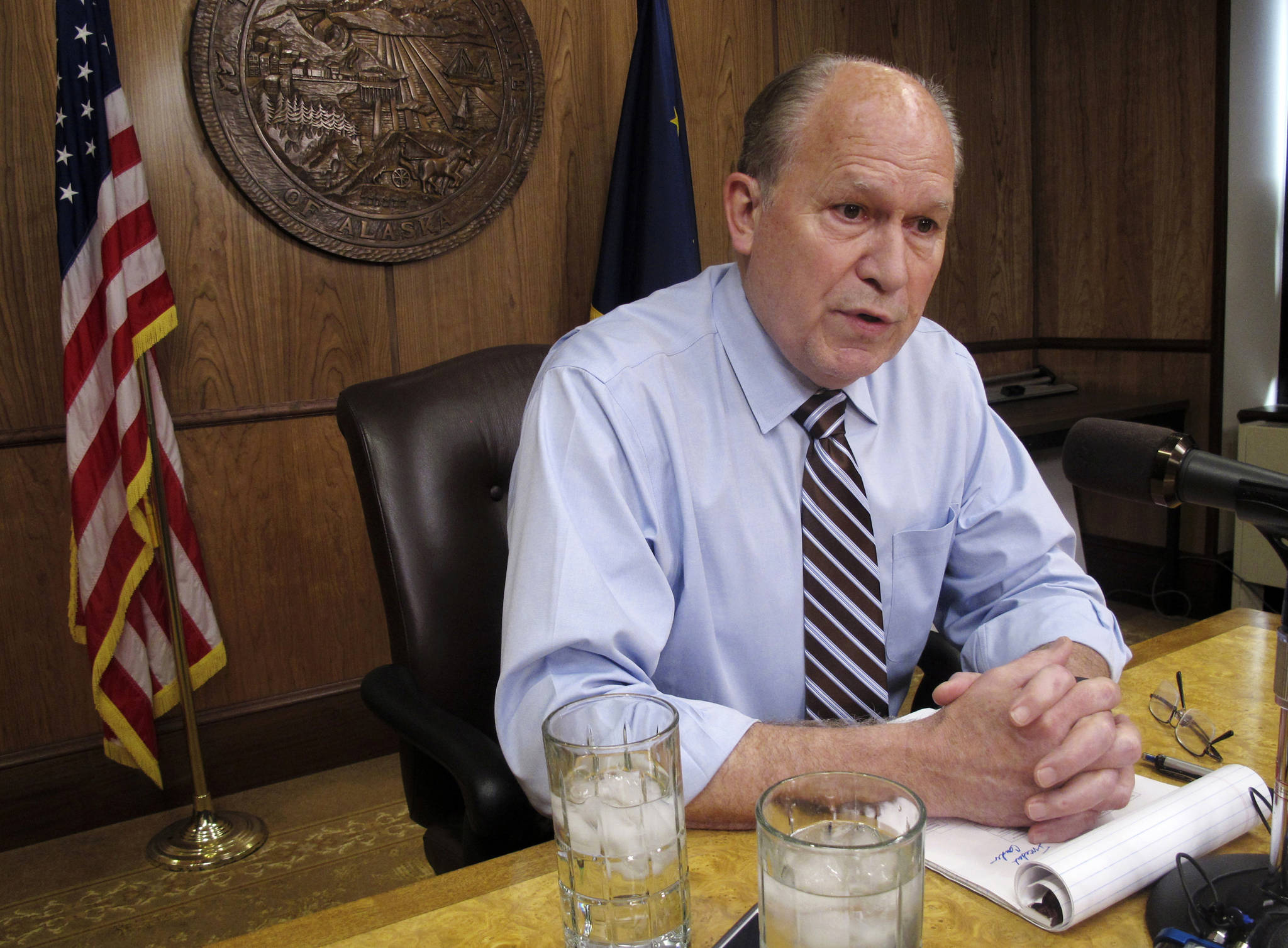JUNEAU — As Alaska lawmakers prepare for their fourth special session of the year, Gov. Bill Walker says he wouldn’t have gone through the hassle and expense of calling it if he didn’t expect legislators to pass the bills on his agenda.
But Walker faces an uphill battle in selling skeptical senators on his proposal to implement a new tax on wages to help address a multibillion-dollar budget deficit that has persisted amid low oil prices.
Over the past two years, proposals to raise taxes or adopt new ones have largely stalled, with lawmakers at odds over how best to tackle the deficit and settling for using savings to help cover state costs.
The House, whose majority coalition is composed largely of Democrats, passed an income tax earlier this year, but the Republican-led Senate voted it down. Members argued the tax was unnecessary and ill-advised for a sluggish economy.
Senate President Pete Kelly, a Fairbanks Republican, said little has changed.
“There’s not a lot of chance that we’re going to be very enthusiastic about taking money out of that economy when it’s still bad,” he said.
Walker, who is politically unaffiliated, sees new revenue from taxes as key to a plan for fiscal stability and to rebuilding confidence with Alaskans and with rating agencies that have cited legislative gridlock in lowering the state’s once-sterling credit rating.
Walker is proposing a 1.5 percent tax on wages and self-employment income that would be capped at the higher of either $2,200 or double the amount of the prior year’s Alaska Permanent Fund Dividend, the annual checks Alaska residents receive from the state’s oil-wealth fund. At full implementation, the tax would generate about $320 million annually, according to the Revenue Department.
Neither the House nor the Senate has embraced the idea, suggesting it could be a compromise that leaves neither side getting everything they want, Walker said.
While Walker and lawmakers generally agree earnings from the Alaska Permanent Fund will be needed to help fill the deficit and make the largest dent in it, he didn’t include it on the agenda. He noted the House coalition previously indicated a desire to tackle taxes before going to permanent fund earnings. Moving one issue at a time is an attempt to avoid the gridlock that snarled previous sessions, he said.
House Speaker Bryce Edgmon, a Dillingham Democrat, said what Walker has proposed is a starting point for discussions.
The major issues for this year’s prior special sessions were the budget and ending a state program of providing cashable tax credits on the oil-rich North Slope, which the oil and gas industry said amounted to a tax increase for companies.
The total cost for the first three special sessions topped $1.2 million, according to the Legislative Affairs Agency.
When lawmakers convene in special session Monday, Walker also is asking them to look at revisions to a criminal justice overhaul passed last year amid a public outcry over crime.
Critics of the overhaul say it goes too easy on criminals – with some insisting it should be repealed. But others caution against a rush to judgment, saying the state is facing an opioid epidemic, and budget cuts have affected prosecutors and law enforcement.
Senate Finance Committee Co-Chair Anna MacKinnon said there’s a desire to respond to the public’s concerns. If criminals believe they can get away with “bad things, then they need to be held accountable and it needs to be harsh,” she said.
But the Eagle River Republican said there also was a reason lawmakers took steps to overhaul the criminal justice system, which has high rates of recidivism.

